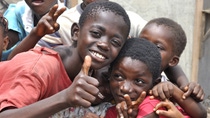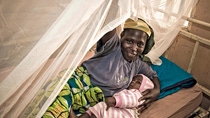Agriculture
Namibia - Stopping Malaria At The Border
In Namibia efforts have been stepped up by the government to eliminate malaria. With the help of NGOs, community leaders, and Interceptor® bed nets provided by BASF, rural populations in the country’s northern border regions have the chance to rid themselves of this deadly disease.
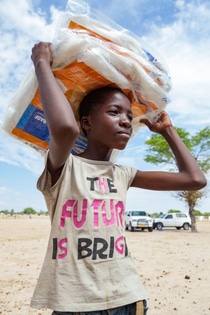
Helena is just 11 years old, but already she knows how important it is to win the fight against malaria in her local community. She lives in Namibia, a country which, like many parts of Africa, has long been affected by this debilitating disease. But there is hope – concerted efforts by her country’s government, with the help of NGOs and the private sector, have achieved huge progress in recent years, reducing malaria rates by 90 percent. Today southern Namibia is free of malaria and in large parts of the country transmission rates are low. *)
This is good news. Yet there are still areas where the disease is prevalent – like Helena’s home in the northern part of Namibia. These are the more remote areas of the country, where communities live far from health facilities and hospitals. Reaching the people here is essential in the fight against malaria.
Now, thanks to the work of community and faith leaders, together with the support of the J.C. Flowers Foundation and thousands of Interceptor® long-lasting insecticide-treated nets from BASF, there is hope that Namibia could be one of the countries in southern Africa to eliminate malaria altogether.
Getting everyone onboard
It is not only the remoteness of the region that poses a challenge; it is also its geography. North-eastern Namibia is shaped like a pan-handle – a narrow piece of land squeezed between Angola, Zambia, Zimbabwe and Botswana. In this area with so many borders, people regularly cross over national lines to visit family and friends or do business. If they are carrying the malaria parasite with them, the chances of transmitting the disease back and forth across the borders is high.
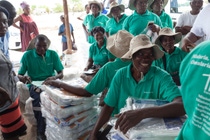
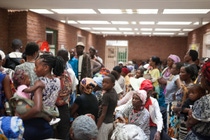
The J.C. Flowers Foundation is working with leaders in local communities to target these remote cross border areas in southern Africa and stop malaria in its path. In order to succeed, the initiative has mobilized local community leaders, faith leaders, and 360 community health workers to distribute 26,000 mosquito nets donated by BASF.
Distributing bed nets is the first step, but interventions such as these are only effective if they are put into use properly by as many people as possible. Local faith leaders, in particular, have played a critical role in communicating the message. As people who work closely within the community, they are not only well-known but also trusted and respected by local people. Building on existing relationships such as these is key to extending the reach and effectiveness of the initiative.
With church leaders and local community leaders reaching out to these remote communities, families have been encouraged to sleep under bed nets and to seek treatment if they fall sick with a fever. If the mix of prevention and treatment is maintained, rates of transmission will fall.
First positive results
New mother Elizabeth followed this advice. During her pregnancy she slept under a mosquito net to protect herself from being bitten by mosquitoes. The risks associated with catching malaria during pregnancy are grave – it can lead to the baby being born prematurely or with a low birth weight, which is a key contributor to infant mortality. For Elizabeth, this risk was averted and she has given birth to a healthy baby boy, born at full term.
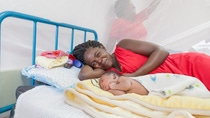
BASF has worked with the J.C. Flowers Foundation for many years and believes that partnerships like these, as well as creative approaches that bring onboard all of the community, are the best way forward in combating malaria.
Today, malaria still claims one life every two minute across the globe; 91% of all deaths are in Africa. The “last mile” to complete eradication of the disease is seen as both the most important and the most difficult.
With a combination of effective community education, monitoring, diagnosis and treatment, together with the use of mosquito nets, indoor residual spraying and other interventions, the transmission of malaria can be reduced and Namibians as well as their neighbors across southern Africa could see malaria eliminated.
For 11-year-old Helena, today there is a real chance that her children will grow up free from the risk of catching this deadly disease – a chance that will be realized if everyone continues to pull together.
1*) Source: World Health Organization Profile Namibia
